Podiatry
Podiatric Surgery Arizona
Achilles Tendon
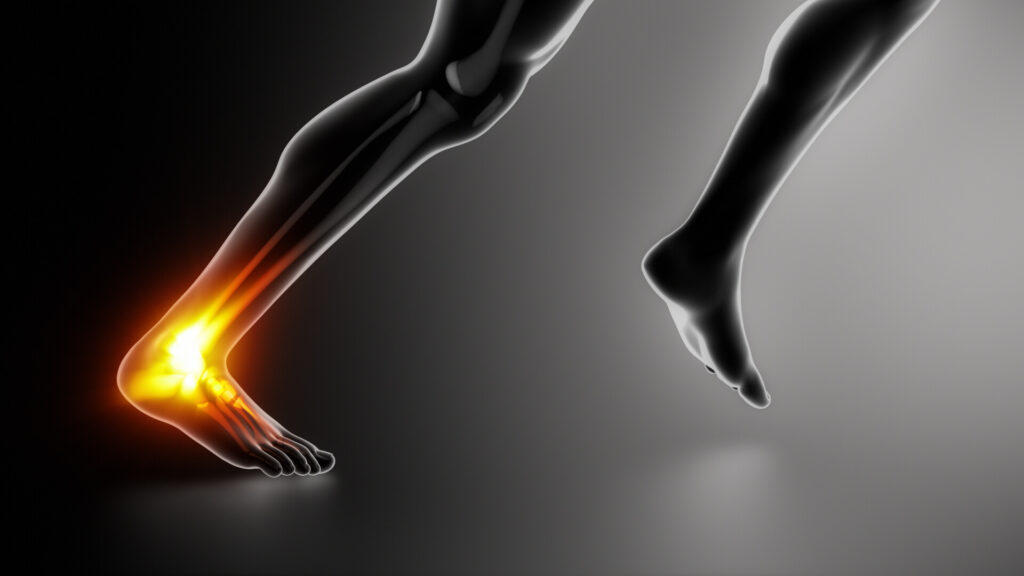
Orthopedic Surgery Solutions for Achilles Tendinitis
Achilles tendinitis is a common condition that occurs when the large tendon that runs down the back of your lower leg becomes irritated and inflamed.
The Achilles tendon is the largest in the body. It connects your calf muscles to your heel bone and is used when you walk, run, climb stairs, jump, and stand on your tiptoes. Although the Achilles tendon can withstand great stresses from running and jumping, it is also prone to tendinitis, a condition associated with overuse and degeneration.
Ankle Arthritis
Orthopedic Surgery Solutions for Ankle Arthritis
Common symptoms of ankle arthritis are joint sensitivity, soreness, warmth, and inflammation. Other key characteristics include pain when trying to move, bear weight, or walk on the joint. It is normal for there to be pain and swelling after sitting down or sleeping.
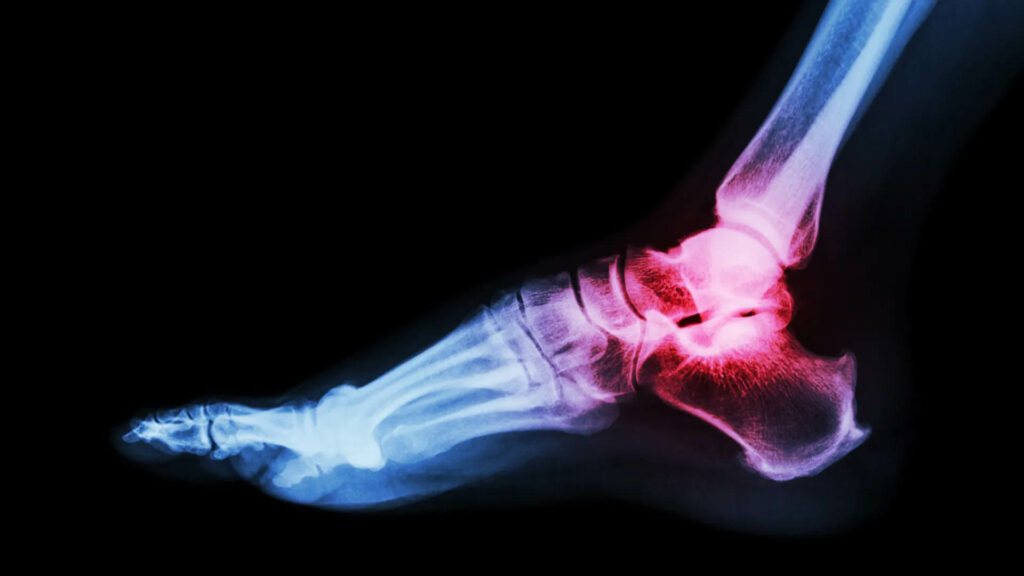
Ankle Osteoarthritis
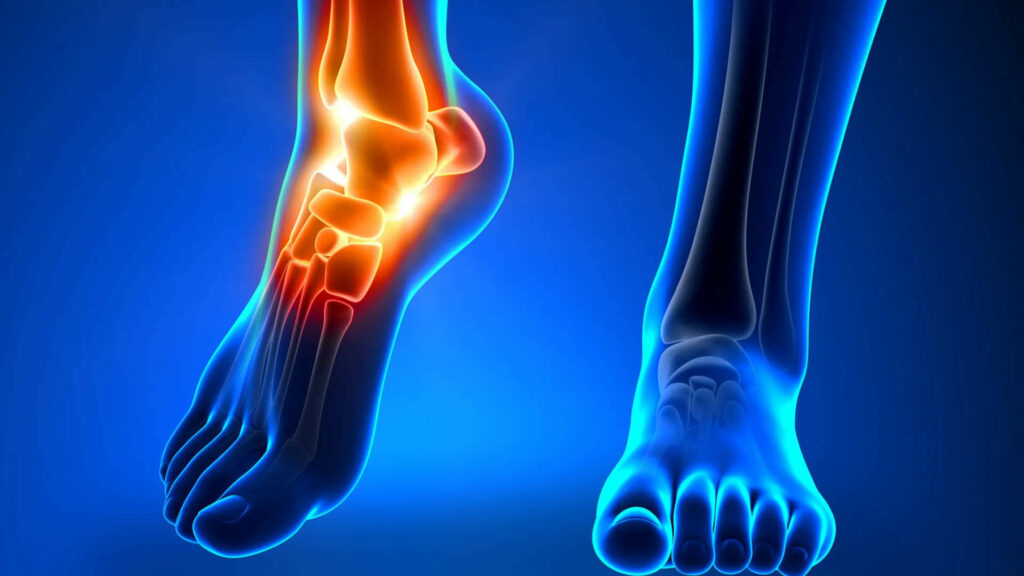
Orthopedic Surgery Solutions for Ankle Osteoarthritis
Osteoarthritis is the most common form of arthritis and affects many joints, including the ankle. There are both surgical and non-surgical treatments for this condition.
The most common effects of Ankle Osteoarthritis are pain and swelling in the joint, stiffness – especially after a period of not moving, and the joint appearing larger than normal.
Big Toe Arthritis
Orthopedic Surgery Solutions for Big Toe Arthritis
Arthritis can affect many joints in the body. One place many people experience arthritis is in their big toe. This is formally known as Hallux Rigidus, and is the most common arthritic disorder of the foot.
Symptoms of Big Toe Arthritis include pain and swelling in the joint, difficulty moving or bending the toe, and eventually a bunion or bone spur may occur.
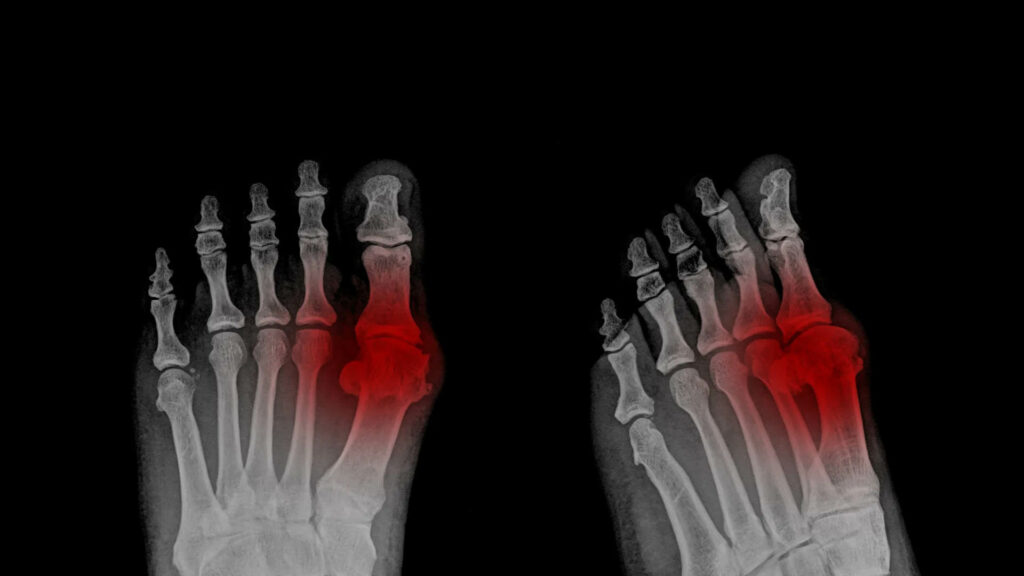
Mild Bunions
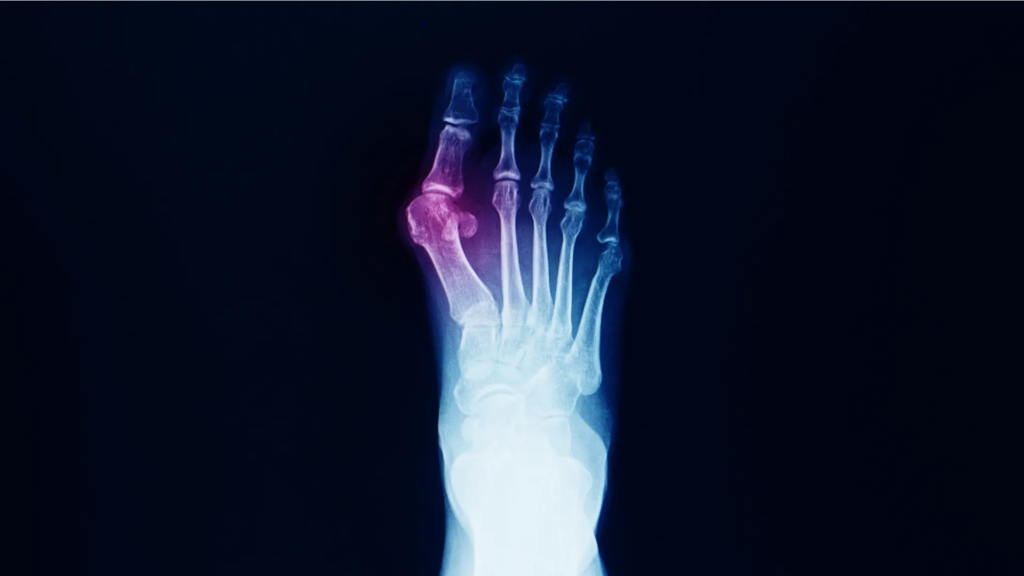
Orthopedic Surgery Solutions for Mild Bunions
A bunion is a deformity in the joint at the base of the big toe. Bunions can develop for many reasons but one of the most common is wearing poorly fitting shoes. Bunions are classified based on their severity. Learn more about mild bunions by clicking the button below.
Moderate to Severe Bunions
Orthopedic Surgery Solutions for Moderate to Severe Bunions
A bunion is a deformity in the joint at the base of the big toe. Bunions can develop for many reasons but one of the most common is wearing poorly fitting shoes. Bunions are classified based on their severity. Learn more about moderate to severe bunions by clicking the button below.
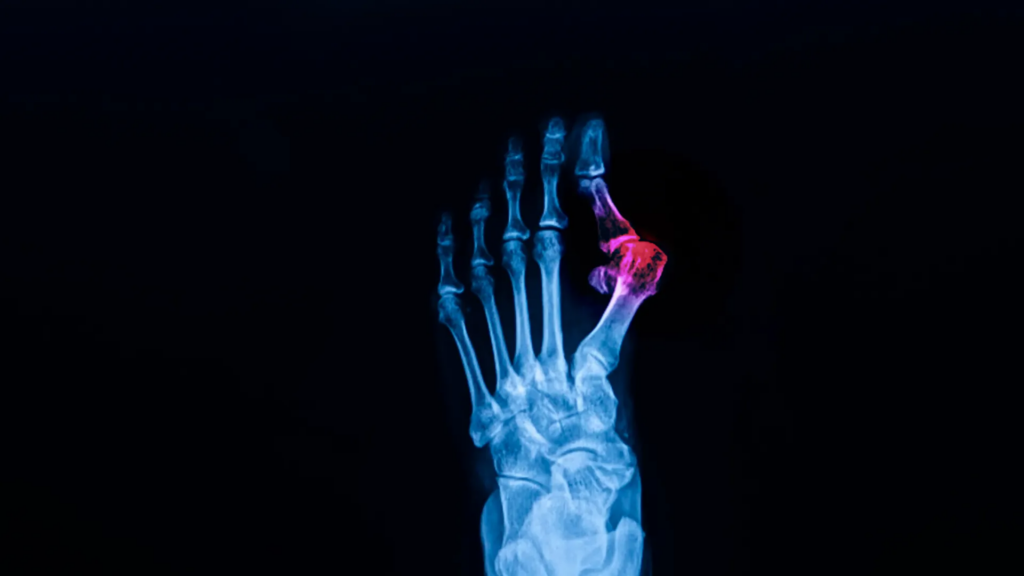
Calcaneal Bursitis
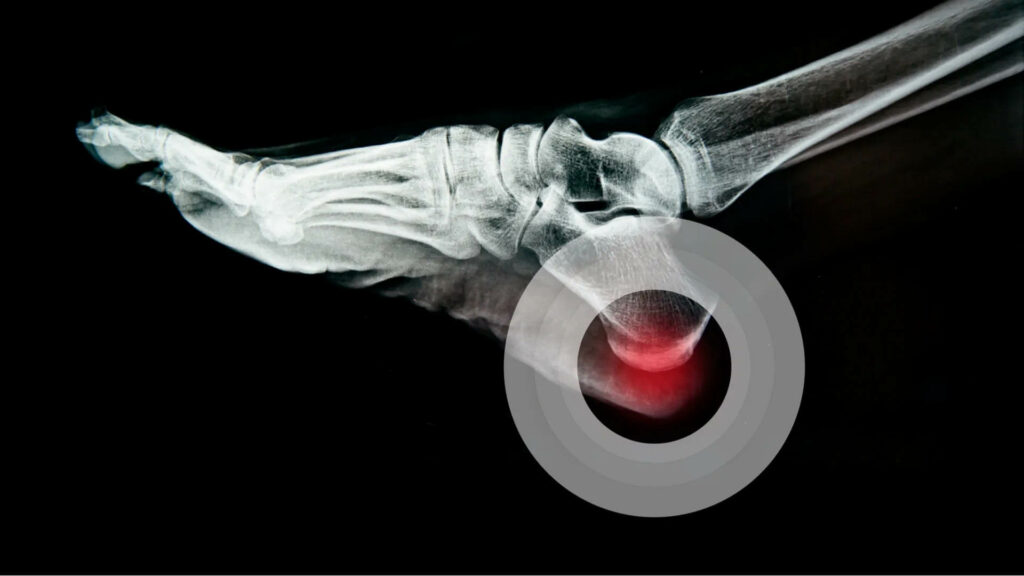
Orthopedic Surgery Solutions for Calcaneal Bursitis
A sore heel will usually get better on its own without surgery if you give it enough rest. However, many people try to ignore the early signs of heel pain and keep on doing the activities that caused it. When you continue to use a sore heel, it will only get worse and could become a chronic condition leading to more problems.
Eversion Sprain
Orthopedic Surgery Solutions for Eversion Sprain
An eversion sprain occurs when the ankle rolls out, causing the bottom of the foot face towards the other foot. An eversion sprain is normally more severe and takes longer to heal. There is a noticeably limited range of motion with significant inflammation and pain when bearing weight.
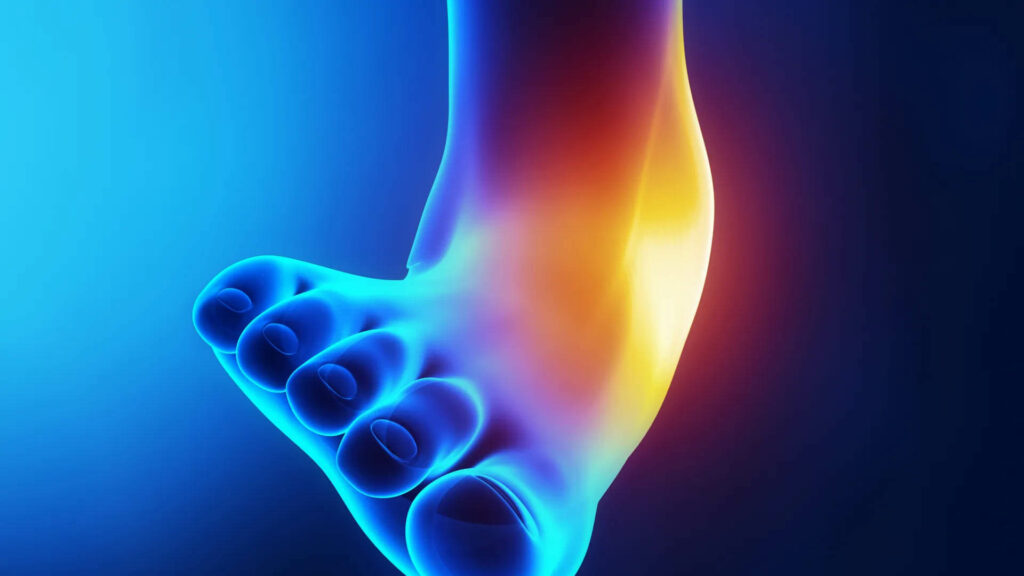
Metatarsal Gout
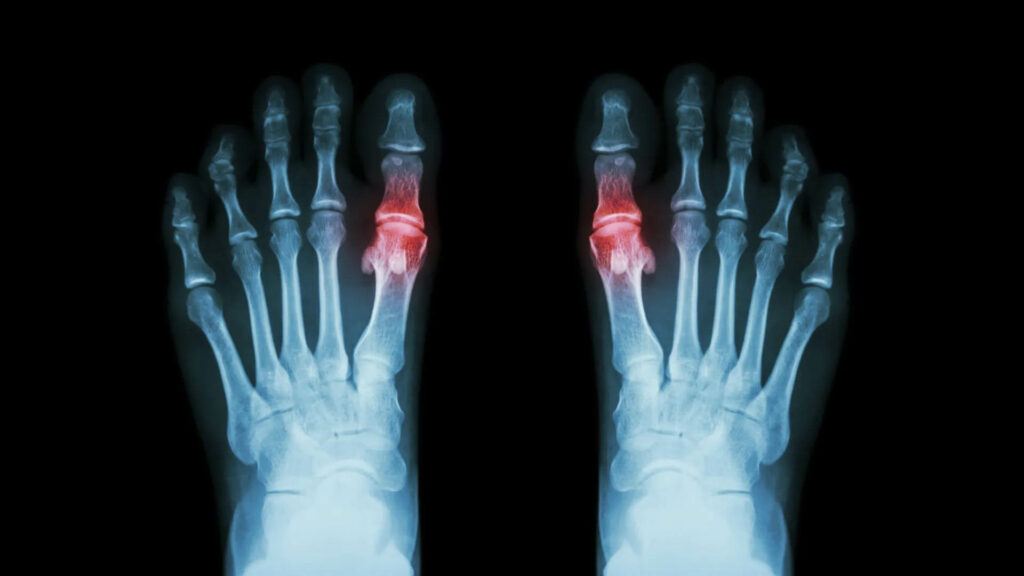
Orthopedic Surgery Solutions for Metatarsal Gout
Gout is a type of arthritis caused by the buildup of uric acid crystals in the blood and tissue. Metatarsal gout is when these crystals build up within one or all five of the large bones of the toes. Gout most often occurs in the metatarsophalangeal, more commonly referred to as the joint of the big toe or the ball of the foot.
Hammer Toe
Orthopedic Surgery Solutions for Hammer Toe
Hammer toe is a painful deformity of the second, third, or fourth toes. It causes them to bend at the middle joint. Symptoms may include an inability to straighten the toe, swelling or redness, and difficulty walking.
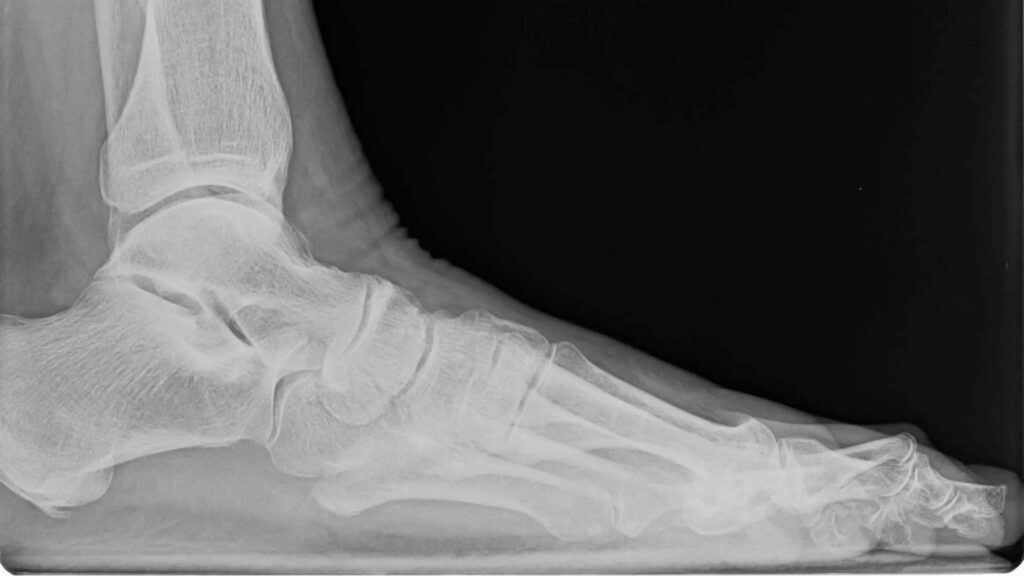
High Ankle Sprain
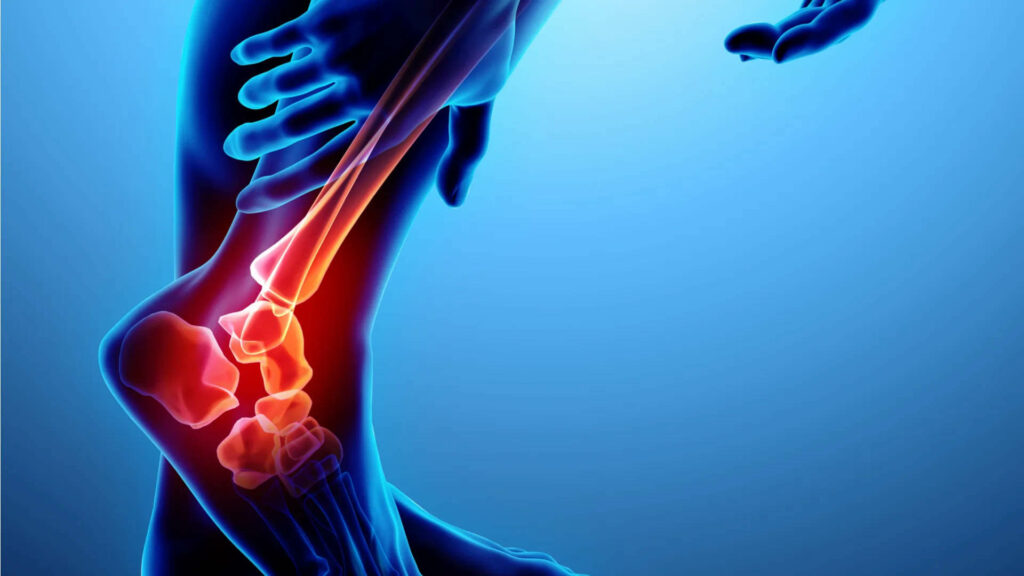
Orthopedic Surgery Solutions for High Ankle Sprain
Most sprained ankles occur in the lateral ligaments on the outside of the ankle. Sprains can range from tiny tears in the fibers that make up the ligament to complete tears through the tissue.
If there is a complete tear of the ligaments, the ankle may become unstable after the initial injury phase passes. Over time, this instability can result in damage to the bones and cartilage of the ankle joint.
Peroneal Tendonitis
Orthopedic Surgery Solutions for Peroneal Tendonitis
Most common in athletes and more specifically runners, peroneal tendonitis is caused by over-exertion of the peroneal tendons. The peroneal tendons are a band that connects the muscles in the foot to the bone. The peroneal tendons help the body with weight displacement and balance. Peroneal tendonitis is what occurs when the tendons are overworked, causing them to brush against the bone.
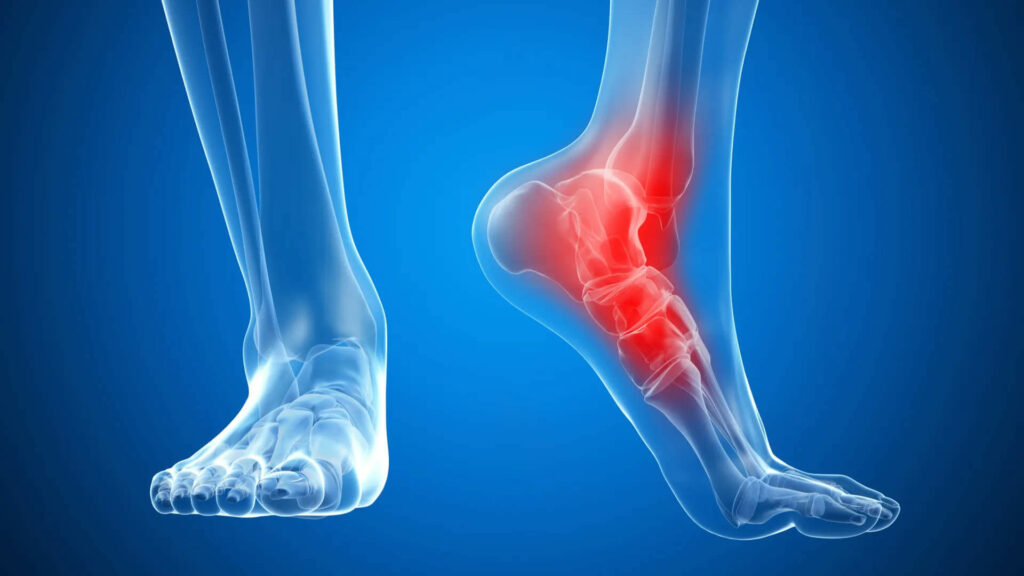
Ankle Inversion Sprain
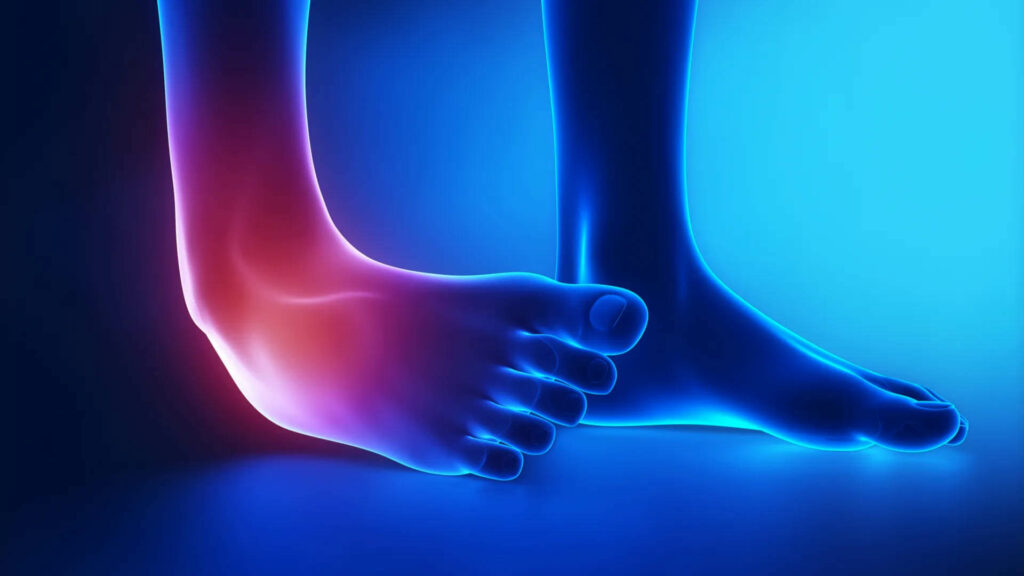
Orthopedic Surgery Solutions for Ankle Inversion Sprain
The most common of low ankle injuries, an inversion ankle sprain, also known as a lateral ankle sprain, is when the ankle rolls towards the inside. This causes the connective tissue inside the ankle joint to stretch. About eighty percent of low ankle injuries are inversion sprains, with the other twenty percent mainly eversion ankle sprains.
Ankle Spur
Orthopedic Surgery Solutions for Ankle Spurs
A spur is a smooth, bony lump that forms on the bone. One of the common places to get a bone spur is on the ankle. Symptoms of Ankle Spurs include redness and swelling at the affected site, stiffness or mobility issues, and difficulty standing or walking.
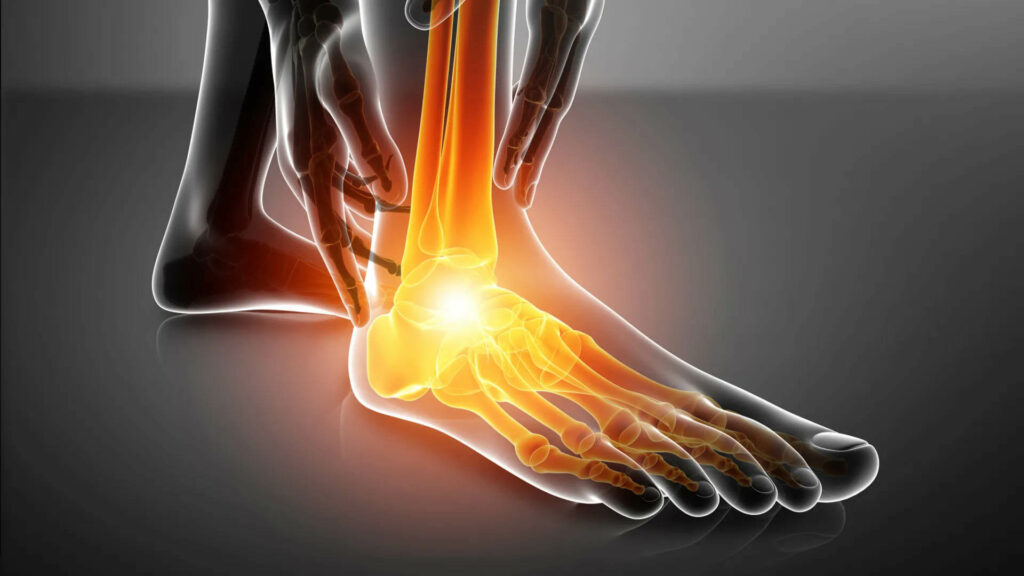
Tibialis Posterior Tendonitis
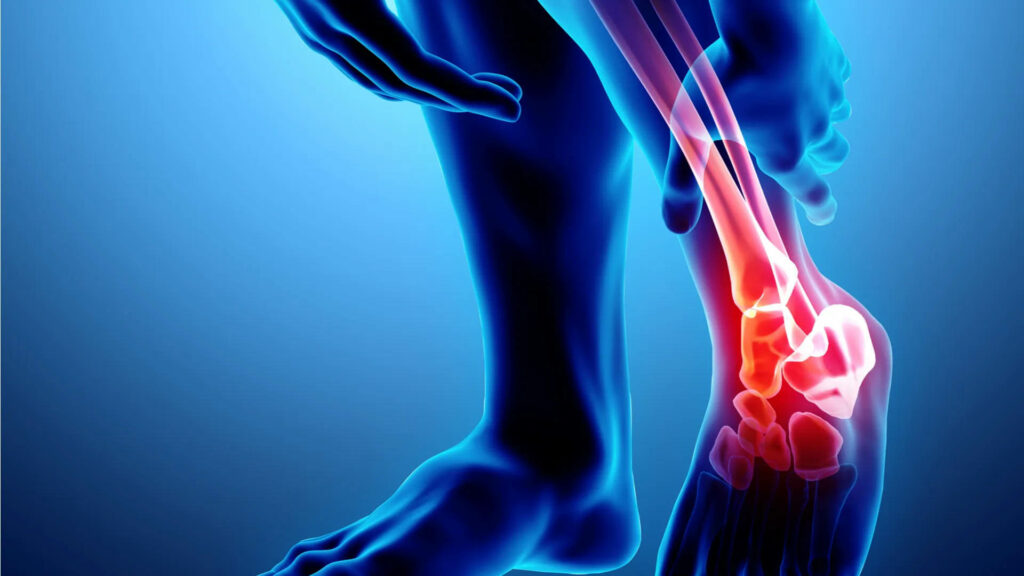
Orthopedic Surgery Solutions for Tibialis Posterior Tendonitis
A prevalent ailment of the foot and ankle, posterior tibial tendon dysfunction occurs when the tendon swells from overexertion or overstretching (hence tendonitis) and in more severe cases, the posterior tibial tendon tears. The posterior tibial tendon connects the calf muscle to the inner foot bones. The posterior tibial tendon holds the arch of the foot up and provides support when walking. When inflamed or torn, an individual may suffer instability and lack of support in the arch of the foot, known as “flatfoot.”

